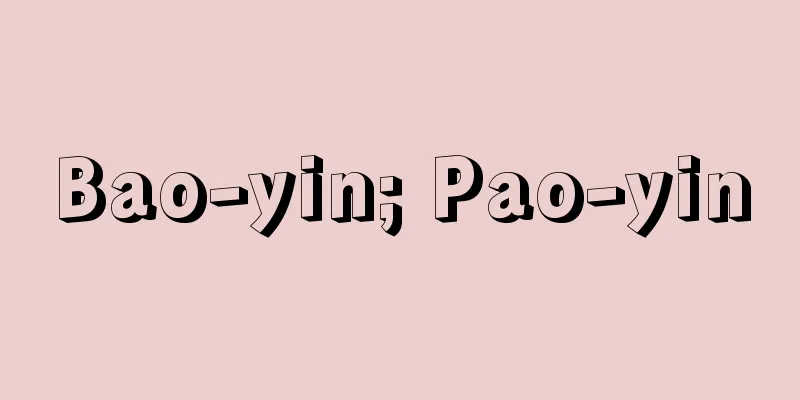Extension of term - Ennin

|
〘 noun 〙 To allow local officials such as kokushi to continue in their positions for an additional year or two after their term of office has expired. This was common from the mid-Heian period onwards. ※Taisho Jingu Shozajiki (mid-11th century): "The chief priest, Idohito. <omitted> However, the order states that he may extend his term of office." Source: The Selected Edition of the Japanese Language Dictionary About the Selected Edition of the Japanese Language Dictionary Information |
|
〘名〙 国司などの地方官の任期が満ちた後、特になお一、二年そのまま在任させること。平安中期以降盛んに行なわれた。※太神宮諸雑事記(11C中か)「宮司伊度人。〈略〉但其賞可二延任一之由宣旨具也」
出典 精選版 日本国語大辞典精選版 日本国語大辞典について 情報 |
>>: Festival Play - Ennichishibai
Recommend
The Psychology of Foules (English)
…Originally starting out as a doctor, his broad i...
Testament - Yuigon
〘Noun〙① Words left behind for afterlife. Igen. Igo...
angel's-trumpet
...Compared to the two species mentioned above, t...
Chondrus verrucosa (English spelling) Chondrusverrucosa
…[Mitsuo Chihara]. . . *Some of the terminology t...
Oil-based paper screen
〘 noun 〙 Shoji screens that have been painted with...
E Region - E Region
...The D region is strongly affected by abnormal ...
Seasonal variation
Seasonal fluctuations are seen in time-series econ...
Remote batch processing
…On the other hand, it is inconvenient for users ...
Akihiro
…Masamune's son, Sadamune, inherited his fath...
Renqiu (English spelling)
A city in central Hebei Province, China. Populatio...
Machine-kneaded soap - Machine-kneaded soap
…The former is called framed soap, which is diffi...
Right to reimbursement - Right to reimbursement (English)
When the rights of a bill or check are extinguishe...
Osaka Copper Blown Companies
…In response to this, the copper mines began to s...
Réaumur (English name) René-Antoine Ferchault de Réaumur
French scientist and engineer. Born into a distin...
Minamoto no Yorinobu
A military commander in the mid-Heian period. He ...





![Viceroyalty - virreinato [Spain]](/upload/images/67ccafae19e52.webp)


![Imaichi [city] - Not so good](/upload/images/67caf221cbd6b.webp)
